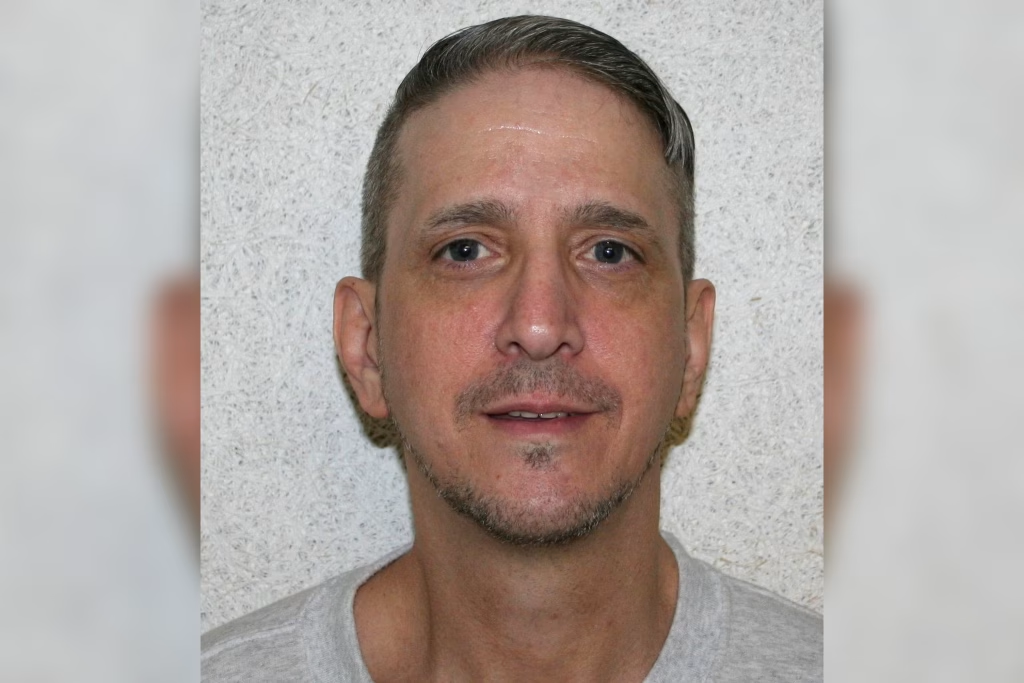U.S. Supreme Court Overturns Richard Glossip’s Conviction, Orders New Trial: A Landmark Victory for Justice.
In a pivotal decision that has garnered national attention, the U.S. Supreme Court has thrown out the conviction of Oklahoma death row inmate Richard Glossip, granting him a new trial.
This historic ruling centers on the prosecution's failure to correct false testimony from its star witness, raising significant questions about due process and the integrity of the judicial system.
What Led to the Supreme Court Ruling?
Richard Glossip, who has been on death row for the past 27 years, was convicted in 1997 for his involvement in the murder of Barry Van Treese, the owner of the Best Budget Inn in Oklahoma City.
The conviction largely rested on the testimony of Justin Sneed, a maintenance worker at the motel, who confessed to fatally beating Van Treese with a baseball bat. Sneed, a methamphetamine addict, implicated Glossip, claiming he had paid him $10,000 to commit the murder.
However, there were significant doubts about the credibility of Sneed’s testimony, and new evidence presented in 2023 cast a shadow on the validity of his claims.
This evidence, which includes previously undisclosed prosecutor's notes, revealed that Sneed had psychiatric treatment for bipolar disorder and was on lithium at the time of his testimony, neither of which was disclosed to the defense during the trial.
The Supreme Court ruled in a 5-3 decision, with liberal Justice Sonia Sotomayor authoring the majority opinion. The Court concluded that prosecutors had violated their constitutional duty by failing to correct the false testimony provided by Sneed.
"We conclude that the prosecution violated its constitutional obligation to correct false testimony," Justice Sotomayor wrote in the ruling.
Key Players in the Case: A Fight for Justice
The decision was a major victory for Glossip’s legal team. Don Knight, Glossip’s attorney, expressed gratitude for the ruling, calling it "a victory for justice and fairness in our judicial system."
He emphasized the long-standing legal precedent that prohibits prosecutors from hiding critical evidence or allowing witnesses to lie to the jury.
“We are thankful that a clear majority of the court supports long-standing precedent that prosecutors cannot hide critical evidence from defense lawyers and cannot stand by while their witnesses knowingly lie to the jury," Knight said. "Rich Glossip, who has maintained his innocence for 27 years, will now be given the chance to have the fair trial that he has always been denied.”
This decision was not only significant for Glossip but also for the broader criminal justice system, illustrating the importance of upholding fairness and transparency in legal proceedings, especially in cases where the death penalty is involved.
The Role of Oklahoma's Attorney General in Glossip's Appeal
A surprising turn in the case came from Oklahoma's Attorney General, Gentner Drummond. In a move that many did not expect, Drummond became an ally of Glossip.
After commissioning an independent investigation into the case, Drummond concluded that critical evidence had been withheld from the defense, potentially leading to a wrongful conviction.
While Drummond has publicly stated that he believes Glossip’s actions in covering up the murder may warrant a lengthy prison sentence, he believes the murder conviction itself was too flawed to stand.
This stance was instrumental in Glossip’s appeal gaining traction, ultimately leading to the Supreme Court's intervention.
Drummond’s investigation unearthed crucial evidence, including a prosecutor's hand-written notes detailing a meeting with Sneed, which indicated that Sneed’s credibility was severely compromised.
Glossip’s legal team argued that the prosecution’s failure to disclose Sneed's mental health history, including his use of lithium, was a grave injustice.
Family of Victim Challenges Supreme Court's Decision
Despite the overwhelming legal support for Glossip, the victim's family, represented by former federal judge Paul Cassell, opposed the Supreme Court’s ruling.
They filed a brief asserting that the prosecution had not suppressed any evidence, and they maintained that Glossip was guilty of commissioning the murder of Barry Van Treese.
“The truth here is that no evidence was suppressed and Glossip commissioned the murder of Barry Van Treese,” the victim’s family argued in their brief.
This pushback highlights the emotional and deeply divisive nature of the case, especially for those who seek justice for the victim.
The Case's Broader Implications for the Justice System
This case is more than just a legal battle for one man’s life. It raises profound questions about how evidence is handled, the reliability of witnesses, and the responsibilities of prosecutors in the criminal justice system.
Glossip’s legal saga has unfolded over nearly three decades, and this Supreme Court ruling now offers the opportunity for a fresh trial that could bring long-awaited justice.
The case also highlights the importance of checks and balances within the justice system, where even the highest courts must intervene to protect the rights of individuals facing the most severe consequences.
This ruling reinforces the notion that even those accused of the gravest crimes are entitled to a fair trial, with every piece of evidence properly scrutinized.
A New Beginning for Richard Glossip
With this Supreme Court decision, Richard Glossip’s case enters a new phase, one that could ultimately lead to a completely different outcome.
Whether Glossip will be exonerated or face a new conviction remains to be seen, but for now, the fight for justice is far from over.
This ruling serves as a powerful reminder that the truth can sometimes take years to surface, and the pursuit of fairness in the judicial system is a never-ending process.
Glossip’s quest for a fair trial, after 27 years on death row, has just received a new lifeline—and for that, the legal community and advocates for justice are watching closely.





















